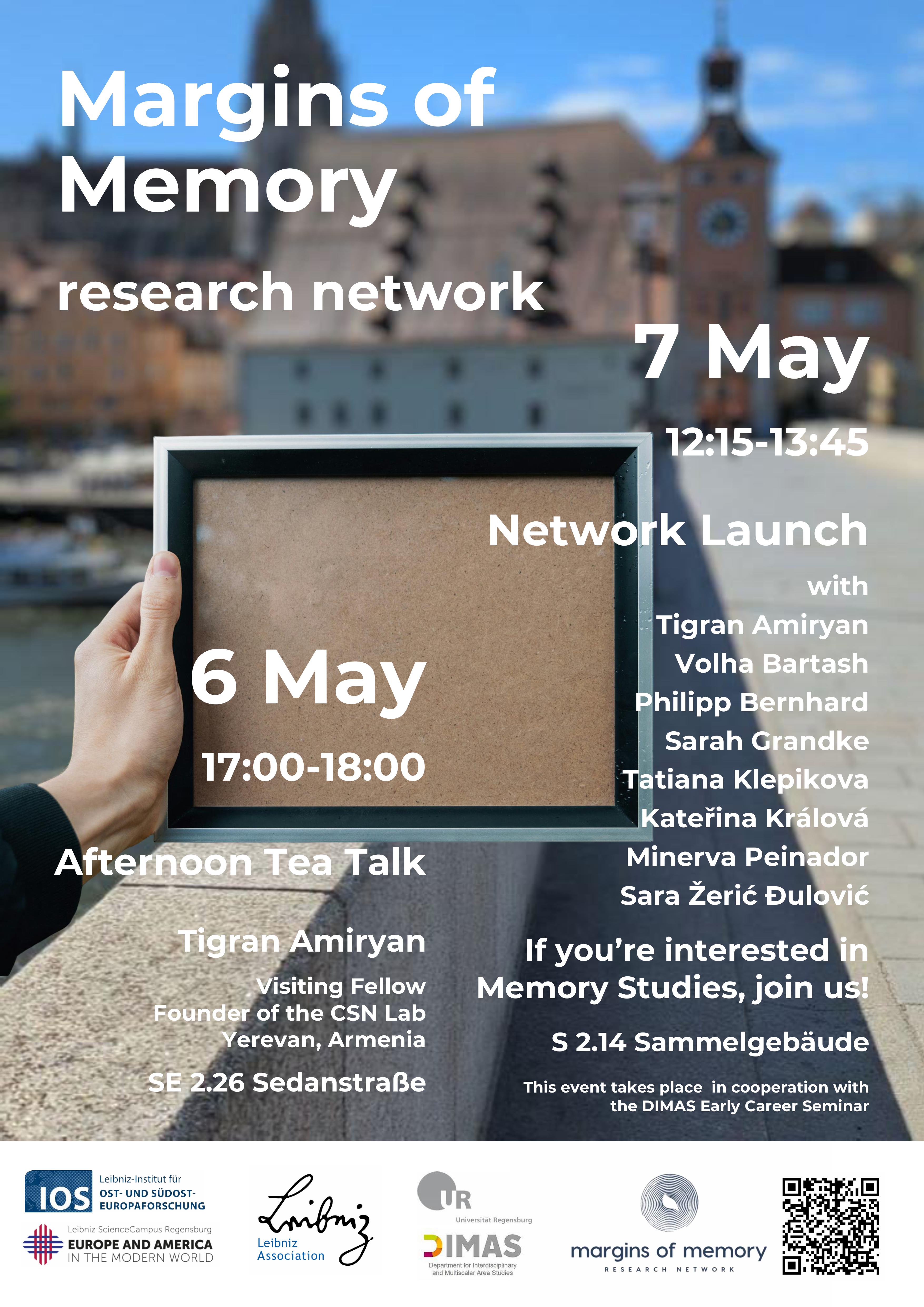Tigran Amiryan (Berlin) | Presentation of the Cultural and Social Narratives Lab in Yerevan
When? Tuesday, 6 May 2025, 17:00
Where? SE 2. 26, Sedanstr. 1, 93055 Regensburg
Please join us for an afternoon tea talk with Tigran Amiryan, our Network member from Yerevan, Armenia. During this talk, Tigran Amiryan will briefly present his ongoing research on Balat – a historically Armenian neighbourhood in Istanbul, Turkey. He will also introduce Cultural and Social Narratives laboratory (CSN Lab)– a research platform that he founded in Yerevan, which unites independent researchers, scientists, cultural workers and artists aiming to reveal the issues of contemporary social and cultural dimensions, which have an important role in the formation of civil societies in Armenia and South Caucasus in general. CSN Lab has a broad range of thematic areas of activity including, but not limited to memory studies and memory activism, cultural rights (gender studies, queer culture, tangible and intangible cultural heritage etc.), complex past and colonialism, urban and public spaces, conflict transformation (dialogue through culture).
Tigran Amiryan is the founder and director of the Cultural and Social Narratives Laboratory (CSN Lab) in Armenia, an expert in ifa’s Research Program “Culture and Foreign Policy,” and a member of PEN Armenia. He holds a PhD in World Literature and specializes in semiology and contemporary culture research. He has held visiting researcher fellowships at the University Lyon 2 (2019) and at Sciences Po (2024) and has been awarded a fellowship from the Hrant Dink Foundation in 2024. Amiryan has authored numerous books and articles focusing on memory studies, comparative literature, and the sociology of literature (such as Balat: Living Together (2023), Getar: Memory of a River (2023), etc.). His main interests include the narrativization of individual and collective memory in contemporary culture as well as the intersections of urban memory, migration and memory, democratic memory, and cultural policies.

